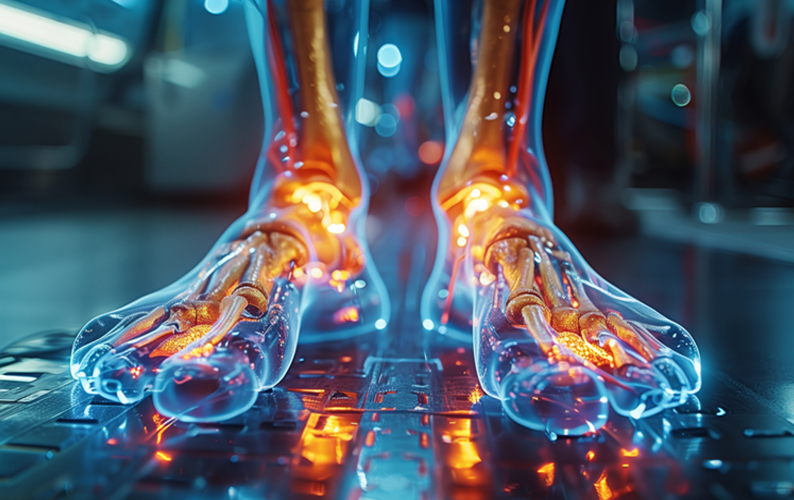Biomechanics

The Foundation of Healthy Movement
Biomechanics is the study of how your body moves—especially how your bones, muscles, joints, and tendons work together to support motion. In podiatry, we focus on the biomechanics of the lower body: how your feet, ankles, knees, and hips align and function when you walk, run, or stand.
Even small imbalances in your foot structure can affect your entire body. Poor biomechanics can lead to pain in your feet, legs, hips, and even lower back. Over time, these imbalances may increase your risk for injuries and chronic conditions.
Why Biomechanics Matter
When your body moves properly, pressure is evenly distributed, joints stay aligned, and muscles work efficiently. But if your gait (walking pattern) is off—even slightly—it can cause strain and compensation in other areas. Some common biomechanical issues include:
Overpronation (feet rolling inward too much)
Supination (feet rolling outward)
Flat feet or high arches
Leg length discrepancies
Abnormal gait patterns
Symptoms of Biomechanical Problems
Foot pain, especially in the heel or arch
Shin splints or knee pain
Hip or lower back discomfort
Fatigue or imbalance during movement
Increased injury frequency
How we can help:
At our podiatry clinic, we perform biomechanical assessments to evaluate your alignment, gait, and posture. Using advanced diagnostics and expert observation, we identify the root causes of your discomfort.
Treatment options may include:
Custom orthotics to correct alignment and relieve pressure
Stretching and strengthening exercises
Footwear recommendations
Gait retraining and physical therapy referrals
Whether you’re an athlete, someone on their feet all day, or dealing with chronic pain, understanding your biomechanics is key to lasting relief and improved mobility. Schedule an evaluation to take the first step toward better movement—literally.